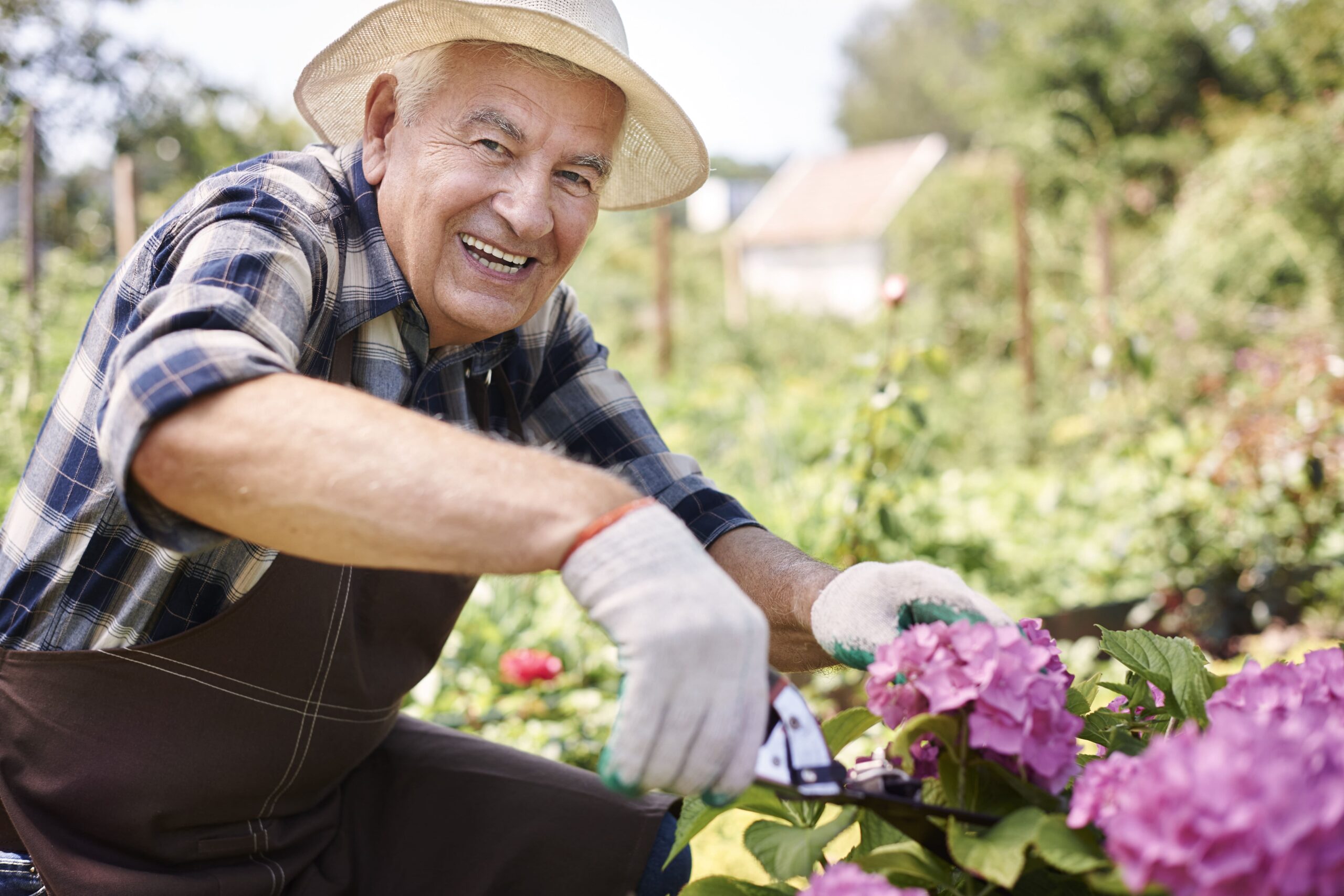As we grow older, it’s important to stay active, both physically and mentally. One wonderful activity that can provide numerous benefits for senior living is gardening. At Alavida Lifestyles, we encourage our residents to take part in our community gardens and experience the joys of nurturing plants. Here are some of the key benefits gardening can provide:
- Exercise in Disguise
Gardening involves a variety of low-impact activities like digging, raking, and pruning. These motions help improve flexibility, strength, and endurance without putting too much strain on the body. Getting some gentle exercise outdoors in the fresh air and sunshine is a refreshing way to stay active.
- Relieve Stress
There’s something incredibly calming about being surrounded by nature and getting your hands in the soil. Gardening allows you to disconnect from the stresses of daily life and focus on the simple pleasure of watching plants grow. Many find it to be a meditative and therapeutic experience. A study found that gardening twice a week can significantly reduce stress levels. Researchers also discovered that daily gardening led to a 4.2% decrease in stress levels.1
- Enhance Dexterity and Senses
Gardening requires using your hands and fingers to perform precise tasks like planting seeds or pulling weeds. This can help maintain dexterity and hand-eye coordination. The smells, sights, and sounds of a garden also provide valuable sensory stimulation.
- Find a Sense of Purpose
Caring for plants gives seniors a sense of responsibility and purpose. Watching the fruits of their labour bloom and grow is incredibly rewarding and boosts self-esteem. It’s a productive hobby that provides a feeling of accomplishment.
- Build Friendships
Since seniors often experience higher rates of loneliness compared to younger individuals; making gardening a social activity can help combat isolation. Gardening provides seniors with a chance to connect with others, encouraging socialization and fostering a sense of belonging.
- Promote Healthy Eating
For those growing fruits, vegetables, or herbs, gardening provides access to fresh, nutritious produce. This encourages healthy eating habits and gives seniors a greater appreciation for where their food comes from.
- Boost Cognitive Benefits
Gardening requires the use of memory skills like remembering planting dates or locations of plants. It also encourages problem-solving, patience, responsibility, and other cognitive abilities that help keep the mind sharp. Studies have shown that daily gardening may reduce the risk of dementia by up to 36%2 .
- Absorb Vitamin D
Spending time outdoors in a garden exposes seniors to healthy doses of vitamin D from the sun’s rays. Vitamin D is essential for strong bones and can boost mood. Getting enough vitamin D helps maintain bone and muscle health in seniors, reducing risks of falls, fractures, and functional decline3.
At Alavida Lifestyles, we’re proud to offer community garden plots for our Seniors’ Suites and Retirement Residences residents (Independent and Assisted Living) to enjoy the mental, physical, and social benefits of gardening. This rewarding pastime brings so much joy and purpose to our community. With beautiful greenery and gardens at all our locations, we invite all residents to get their hands dirty and experience the magic of watching plants flourish under their care.
Sources
- Chalmin-Pui, Lauriane Suyin, et al. “Why Garden? – Attitudes and the Perceived Health Benefits of Home Gardening.” Cities, vol. 112, no. 112, May 2021, p. 103118, https://doi.org/10.1016/j.cities.2021.103118.
- Simons, Leon A, et al. “Lifestyle Factors and Risk of Dementia: Dubbo Study of the Elderly.” Medical Journal of Australia, vol. 184, no. 2, Jan. 2006, pp. 68–70, www.mja.com.au/journal/2006/184/2/lifestyle-factors-and-risk-dementia-dubbo-study-elderly, https://doi.org/10.5694/j.1326-5377.2006.tb00120.x.
- Meehan, Meghan, and Sue Penckofer. “The Role of Vitamin D in the Aging Adult.” Journal of Aging and Gerontology, vol. 2, no. 2, 31 Dec. 2014, pp. 60–71, www.ncbi.nlm.nih.gov/pmc/articles/PMC4399494/, https://doi.org/10.12974/2309-6128.2014.02.02.1.

